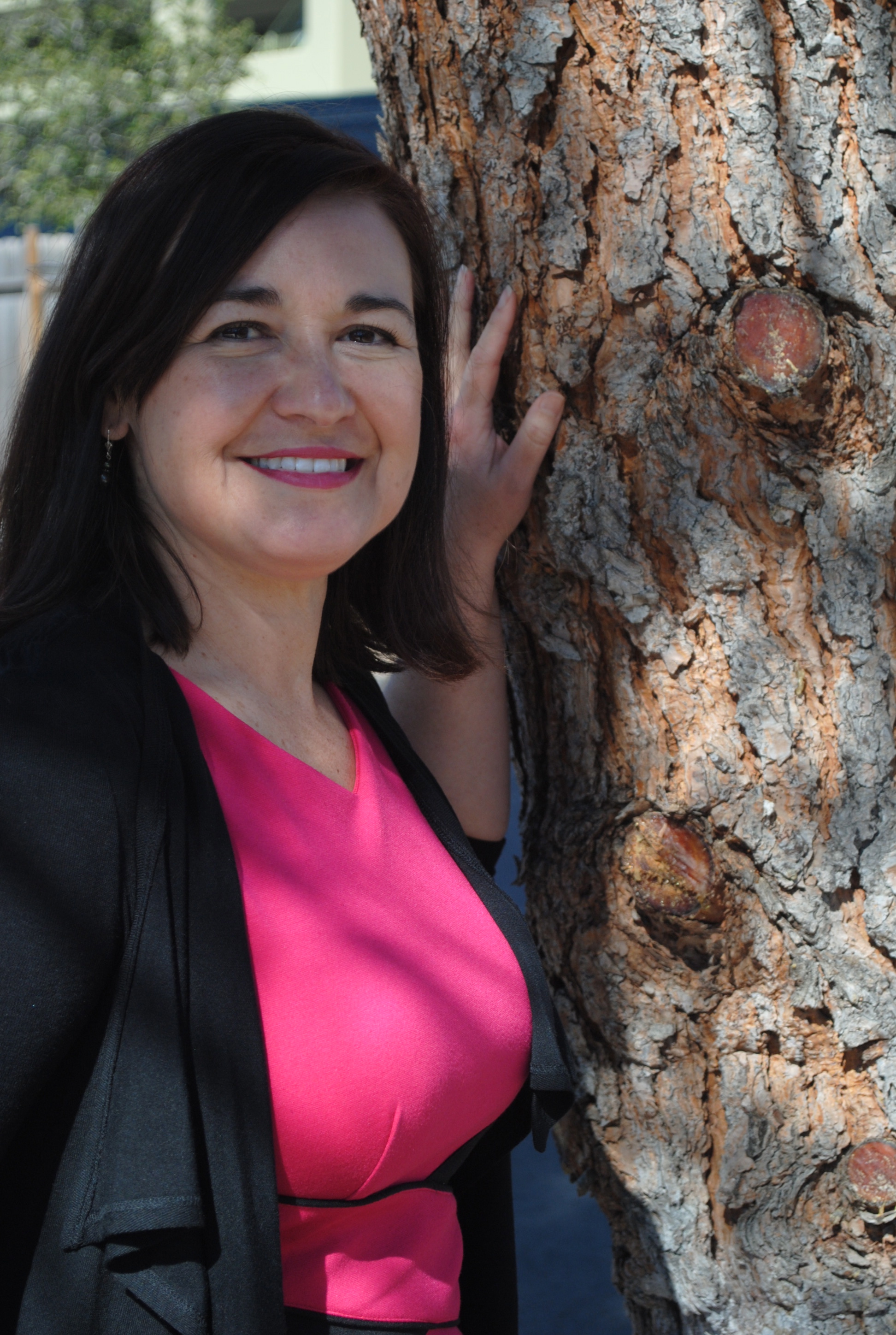Sandoval Serves Many Communities
From National Museum Official to University Lecturer to Tribal Educator, Niki Sandoval, PhD, Leads an Interesting Life
Nicolasa “Niki” Sandoval loved her work at the National Museum of the American Indian in Washington, D.C., in the mid-1990s. She rose quickly to become assistant director for community services, and, she says, she truly enjoyed meeting representatives of the nation’s many tribes.
But in 2001, when terrorists plowed a jetliner into the Pentagon just a few miles from her workplace, it caused her to rethink the path of her career, particularly how she had ended up thousands of miles from her family and tribal roots. It was time, she decided, to return home to the Santa Ynez Band of Chumash Indians.

That choice eventually led to a PhD in education (a first for the tribe) from the University of California Santa Barbara, where she is currently a lecturer; selection as the tribe’s director of education; and a husband, though not necessarily in that order. Late last year, Governor Jerry Brown sweetened her progress with a three-year appointment to the California Board of Education.
The 11-member, all-volunteer board sets statewide standards for student assessment and performance, and approves textbooks and curriculum policy. “As a graduate of the public school system … I am committed to improving educational opportunities and outcomes for all California students,” she declared.
Niki, as she is widely known, has a plainspoken, matter-of-fact manner that is effective in the campus classroom where the doctor enhances undergraduates’ self-awareness as well as their insights into building a multiethnic nation. A warm smile accompanies the first-generation college graduate’s way of speaking, placing at ease students and visitors alike.

In 2009, two years after securing her doctoral degree, she was hired as the Santa Ynez tribe’s new education director. Relying on consultations with the community and her dissertation research, which analyzed partnerships between Native American parents and schools, Sandoval supports an active tribal role in the education of all its members. This also fit the direction advocated by members of the tribe’s Education Committee.
One result of this collaboration is the tribe’s first dedicated Learning Center, which opened in November 2012 in an expanded, remodeled former residence adjacent to the Chumash Casino. The center also houses modest offices for Sandoval and a few staff members.
At the center, students from preschool to high school find a secure, welcoming space for their educational needs. They are aided and supervised by 26 paid, credentialed teachers who can mentor them in specific subjects, according to Richard Gomez, the Santa Ynez tribe’s vice chair. Currently, he added, 98 students affiliated with the tribe attend local public or private schools.
Sandoval noted that the center also has one high school student who is a volunteer tutor. A small computer lab and library complement the center’s new planter-box garden and greenhouse.
Parental engagement is welcome at the center and considered a major resource, said Sandoval. As examples, one father frequently participates with his son in an after-school Chumash language class. Another family’s grandmother was “an honored guest” who showed children how to make acorn necklaces.
Parents also helped to establish the garden, she added. “The Learning Center is a thriving place for people of all ages to learn.”
It will come as no surprise to learn that Sandoval credits her own parents with instilling her passion for learning. “My mother read to me and my sisters” from an early age, she recalls, teaching Sandoval to read before kindergarten. Her father took her to many museums when the family was living in the Sacramento area. Both adults instilled in the children their values of honesty and hard work as the basis for self-sufficiency, Sandoval says.
When she was eight, Sandoval’s parents divorced but kept amicable relations, even after her mother, who was part Chumash, moved the girls to the reservation. Despite supportive relatives, life was more difficult after that, and Sandoval’s mother worked hard to keep her children in school.
As the eldest of the four children, Sandoval began to contribute income to the family as soon as she was 12, cleaning motel rooms during summer break. She admits that in high school her grades suffered, but she feels that reading got her through a rough patch. “[Reading] was peaceful and where I found rest” from family and outside pressures, she remembers.
Looking back, she feels today she is in the right place, doing the right thing. “In a way, my parents’ teachings live through me,” she says.



